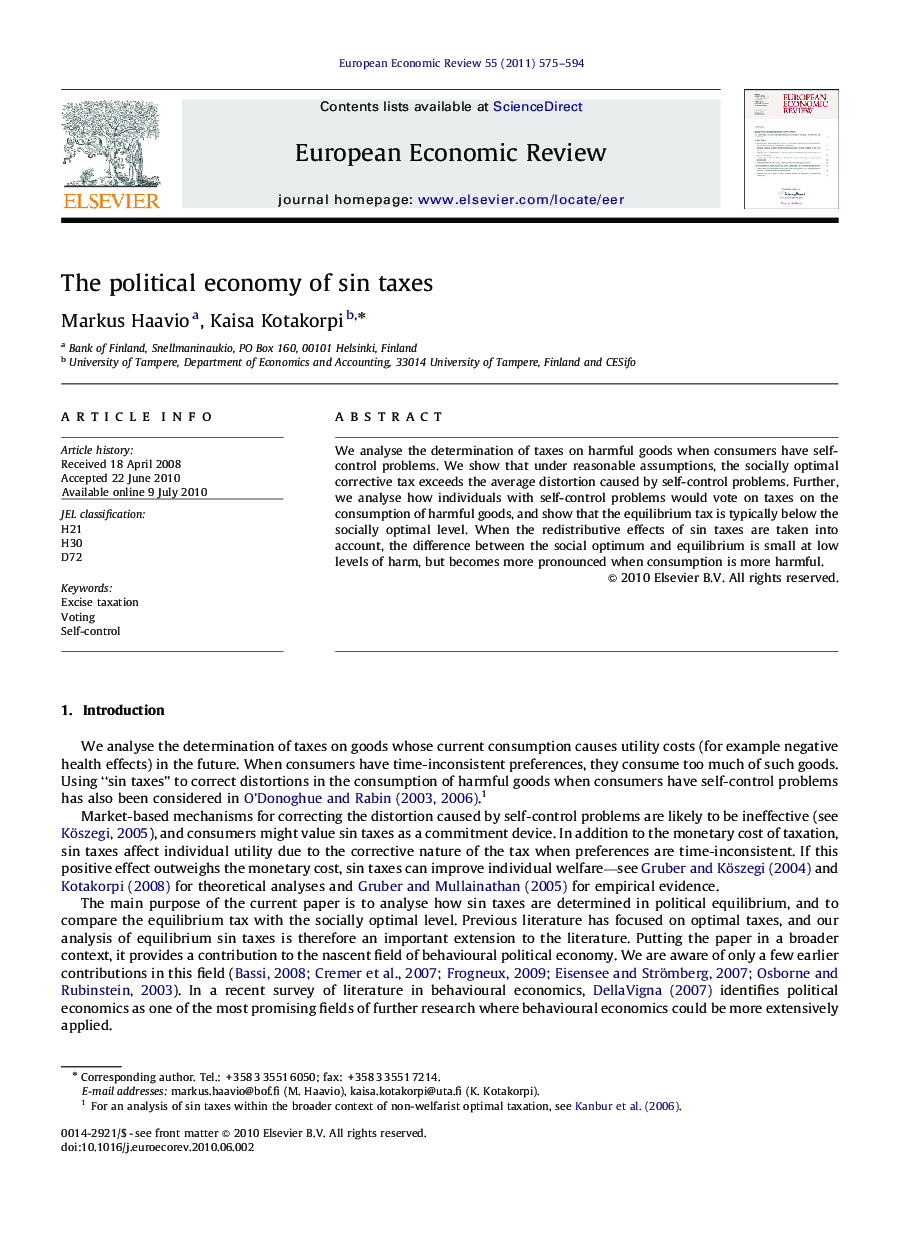| Article ID | Journal | Published Year | Pages | File Type |
|---|---|---|---|---|
| 5067158 | European Economic Review | 2011 | 20 Pages |
Abstract
We analyse the determination of taxes on harmful goods when consumers have self-control problems. We show that under reasonable assumptions, the socially optimal corrective tax exceeds the average distortion caused by self-control problems. Further, we analyse how individuals with self-control problems would vote on taxes on the consumption of harmful goods, and show that the equilibrium tax is typically below the socially optimal level. When the redistributive effects of sin taxes are taken into account, the difference between the social optimum and equilibrium is small at low levels of harm, but becomes more pronounced when consumption is more harmful.
Keywords
Related Topics
Social Sciences and Humanities
Economics, Econometrics and Finance
Economics and Econometrics
Authors
Markus Haavio, Kaisa Kotakorpi,
